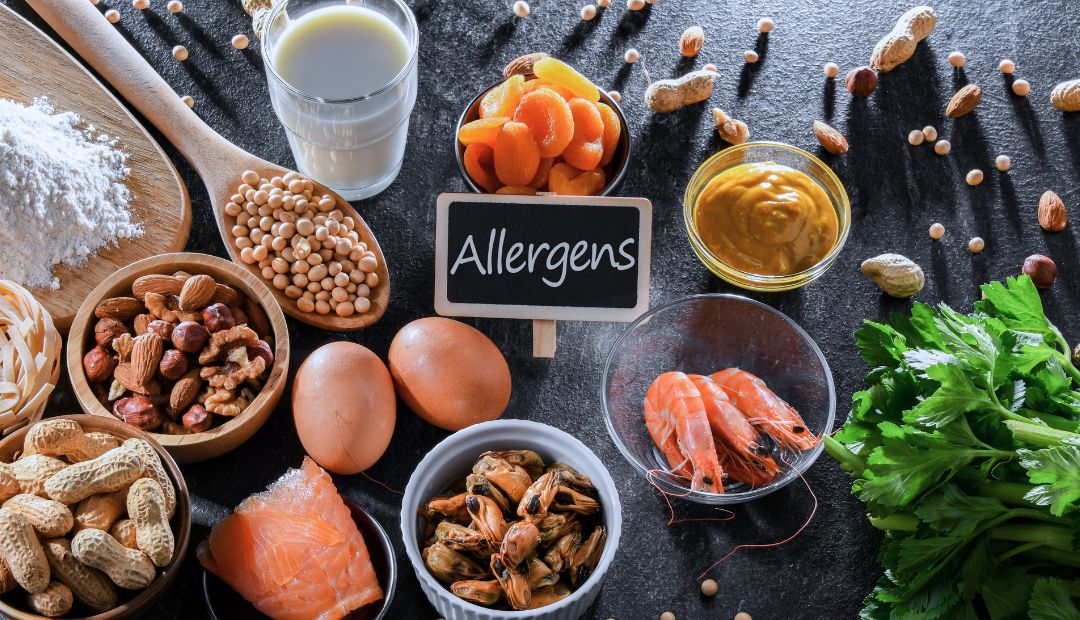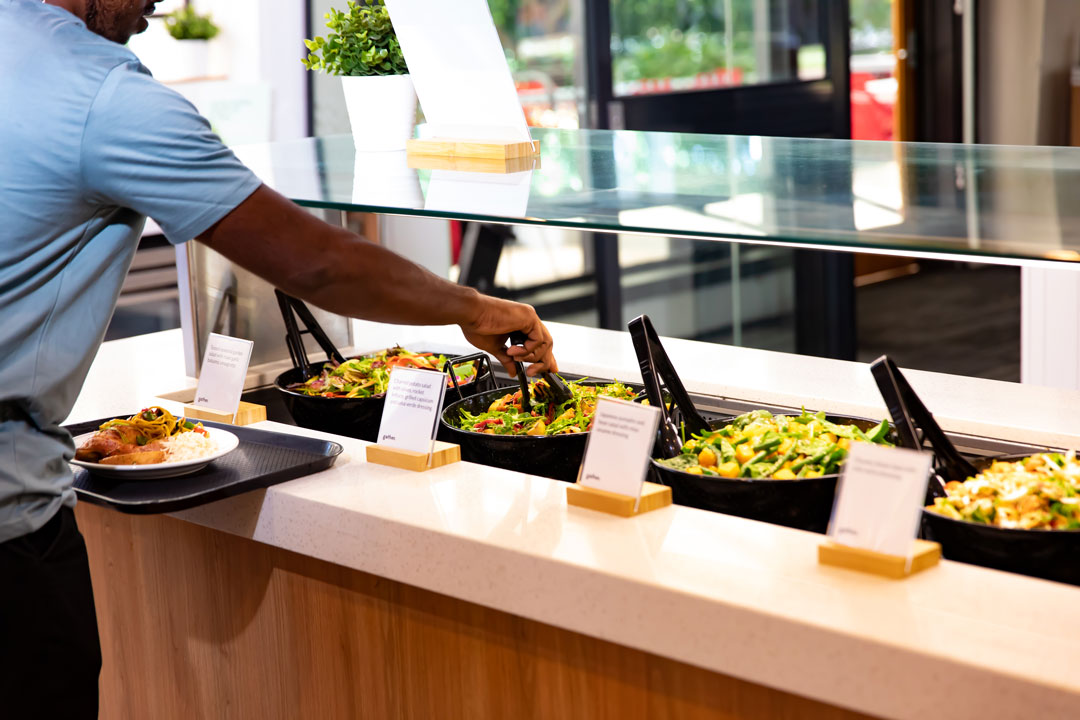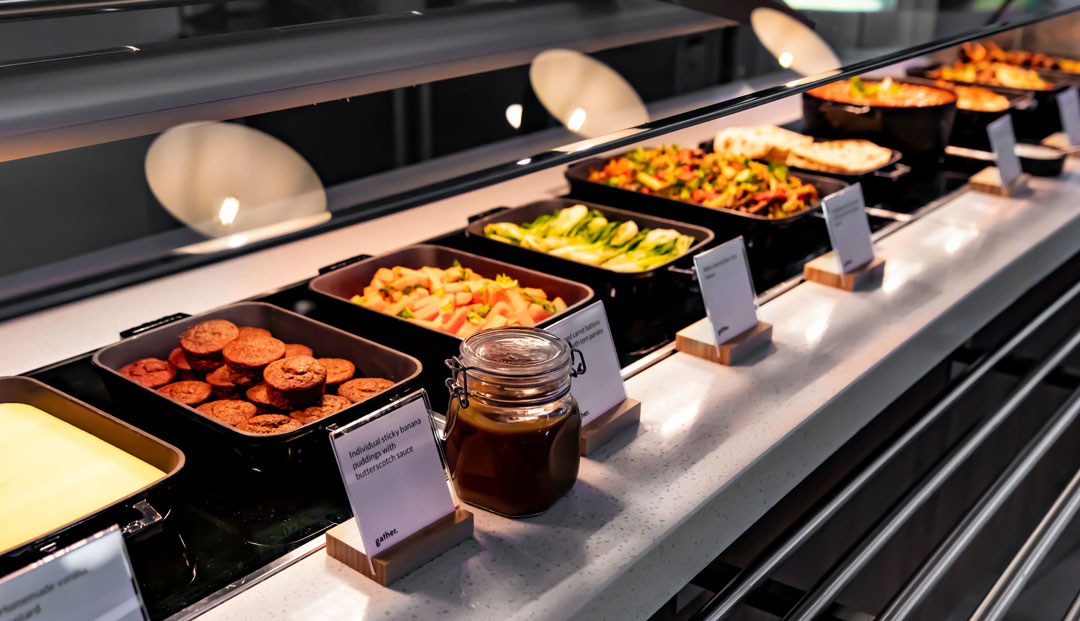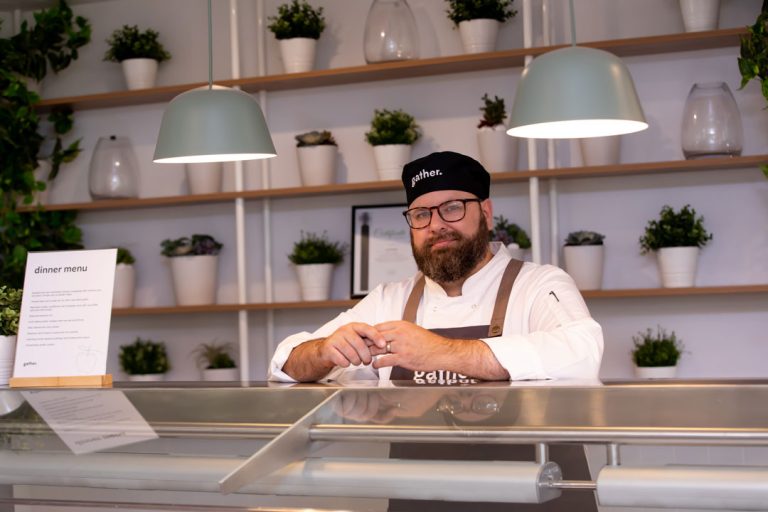Imagine being thirteen, hungry after sport, lining up for lunch, and feeling a knot of anxiety, wondering if this meal could make you sick.
For students with food allergies, this isn’t imagination. It’s daily reality.
Food allergies are no longer a niche concern; they’re now a key part of how schools manage risk, build trust, and support student wellbeing. Across Australia and New Zealand, up to 10% of children have food allergies, and most carry them into adulthood. Add in dietary requirements linked to religion, ethics, or health—think halal diets, veganism, or coeliac disease—and schools are being asked to cater to an increasingly complex range of needs. Especially in boarding school catering, where school is also home.
“We need to be mindful that we operate in people’s homes. In boarding schools and universities, they live there. So these people deserve to eat what they want, how they want, and when they want it… We want to give them as close as possible to the meal that’s on the menu.”
John Fallon, Food Safety

The rising pressure to get allergy safety right
With allergy rates increasing, parents expect reassurance that their child can eat safely—at every age level. Surprisingly, the highest risk of anaphylaxis often sits with secondary students, who are managing their own meals for the first time. They’re navigating new independence, peer pressure, and a lack of confidence to speak up, all while trying to stay safe.
Anaphylaxis risk management is one area where ‘almost right’ can still be dangerously wrong. One missed ingredient. One shared spoon. One distracted moment. It only takes a small slip to have a big impact, which is why allergy safety depends on structured systems that work, even on the busiest days.
Managing allergies at school isn’t just about removing nuts or adding allergen-labelled stickers. It takes training, clear communication, inclusive food design, and a culture of care. That’s why putting the education back in education catering is so important. For education catering teams already juggling a lot, it’s a big task, but it can be done well. Because food should be joyful, not fearful. And that makes the work worth it.
The hidden complexity of school catering
We won’t hide the fact that allergen management is hard. When you’re dealing with dozens or hundreds of students—all with unique dietary needs—even one miscommunication or mislabelled ingredient can lead to serious consequences.
Many in-house teams are doing their absolute best, but often we find:
-
- Chefs without formal anaphylaxis risk management or allergy training
- Dietary forms from parents that are too detailed and hard to translate
- Storage, prep, and communication protocols not designed for allergy safety
- High-pressure service environments where a student might end up in the wrong queue or feel unable to speak up
- Challenges in designing meals that work for multiple food needs without students feeling ‘othered’.
For a deeper look at the pitfalls of managing catering internally, see The Risks of In-House Event Catering.
“We don’t want anyone to feel put out or ‘less than’ anyone else when they’re eating food.”
John Fallon, Food Safety
These challenges are real. But not impossible. With the right support systems and practices, catering companies for schools can create safer, more inclusive dining experiences that support student wellbeing and school risk profiles.

6 school catering strategies to help schools meet rising allergy risks
Here’s what works. These are real-world strategies we’ve seen succeed in school and boarding school catering environments across Australia.
1. Mandatory training in allergy safety and anaphylaxis risk management
Training shouldn’t be a one-time checkbox on an induction form. It should be ongoing and empowering. Every team member—from head chef to casual kitchen staff—should know how to safely handle food allergies, how to escalate questions, and when to pause rather than guess.
“The first thing that the allergen management document says is: ‘If you don’t know what’s in the food, you need to admit it to the consumer.’”
2. Clear labelling and smart ingredient management
Allergy-friendly items should be stored separately, clearly labelled, and double-checked for allergens—including less common ones like nightshades or low FODMAP ingredients. Catering companies for schools often bring structured systems that make this easier to manage at scale.
3. Respectful service systems for students with allergies
Some schools use discreet wristbands or colour-coded systems so students with allergies can approach the right service counter, where trained chefs check their names and needs before serving. It builds confidence while protecting dignity—and it allows students to still make their own choices from the safe options available.
4. Menus designed with inclusion in mind
Every student deserves to feel safe, included, and confident at mealtimes.
It’s not about making substitutions. It’s about designing meals to be inclusive by default. That might mean using gluten-free soy sauce across the board, or baking muffins that are dairy-free by default. No student should always be the ‘special case’ or ‘the allergy kid’
5. Transparent communication builds trust
Parents want peace of mind. Students want respect. That comes from open communication, where questions are welcomed, not shut down, and where ethical or religious food needs like halal or veganism are understood and catered for with care.
6. Ongoing improvement and cultural safety
Education catering isn’t static. It changes with students, seasons, and school values. That’s why at gather by Cater Care, we use annual risk audits, parent surveys, and chef-led learning to stay ahead of allergy trends and reduce risk in real ways.
“It’s just respectful. We have to do it. There’s no other option for us because it’s pride and respect.”

Why more schools are turning to catering companies for schools
Allergy-safe catering is a specialist skill. As schools face increasing dietary diversity, and growing pressure from parents to get it right, many are turning to dedicated education catering providers.
At gather by Cater Care, we partner with schools and colleges to deliver allergy-aware food programs that ensure:
-
- Train every team member in food safety, allergen management, and inclusive food service
- Collaborate with dietitians to develop inclusive, balanced menus
- Build partnerships with schools to foster inclusive, respectful mealtimes
- Constantly evolve our systems to match your school’s needs
We’re a values-driven team that brings confidence, dignity, and warmth to boarding school catering and college dining. It’s because of this that we love partnering with schools like Westminster, where our allergy-aware catering supports community, inclusion, and safety.
Watch their story in action here.
Let’s talk about what’s possible
Want to explore a smarter, safer way to manage food allergies at your school or college?
Let’s talk about how gather can help you deliver inclusive, allergy-safe meals that build confidence, not stress.
Reach out to David to start the conversation.
Because in education catering, allergy management isn’t a checkbox. It’s a culture.

To find out more, get in touch with David O’Brien to have a quick chat about how gather can provide your students and residents with a well-rounded and connecting mealtime experience.



